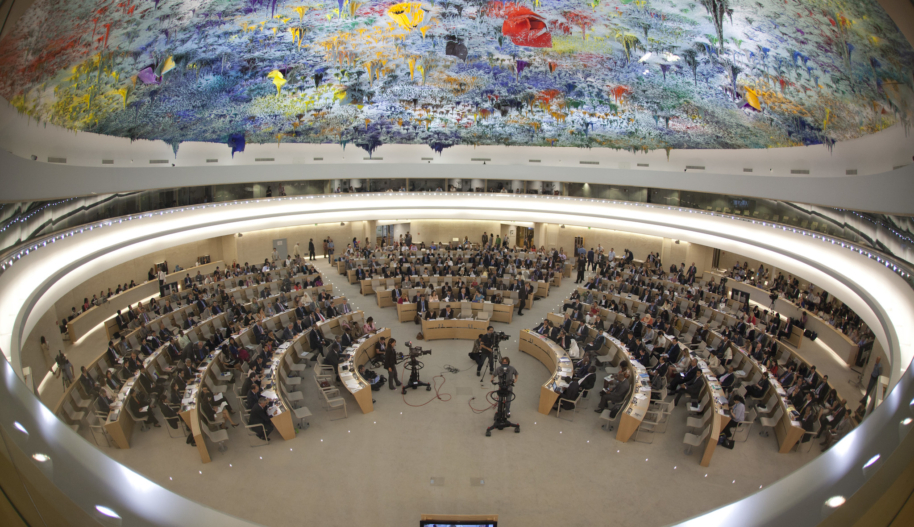A delegation from Amnesty International Canada will contribute to Canada’s Universal Periodic Review this week, highlighting the deplorable state of Canada’s relations with Indigenous Peoples as well as systemic discrimination against Black workers in the federal public service.
France-Isabelle Langlois, Executive Director of Amnistie internationale Canada francophone, and Ketty Nivyabandi, Secretary General of Amnesty International Canada’s English-speaking section, will address the United Nations on Friday as part of Canada’s participation in the fourth Universal Periodic Review (UPR). The UPR requires Canada to defend its human right record and demonstrate its progress on recommendations made at the last UPR, held in 2018.
Accompanying the Amnesty International Canada delegation are representatives from the Indigenous Nations of Pessamit and Wet’suwet’en, as well as Nicholas Marcus Thompson of the Black Class Action Secretariat, which is working to eliminate racism in the federal public service.
“First Nations will continue to share their message loud and clear. We will continue to ardently defend our fundamental rights and the territories handed down to us by our ancestors. We will always demand justice on every platform and occasion available to us. And we will always surround ourselves with influential allies to spread our message and gain respect. This mission to Geneva for the Universal Periodic Review (UPR) will be a powerful symbol and demonstration of solidarity.” –Jérôme Bacon Saint-Onge, Vice-Chief, Conseil des Innus de Pessamit
“The way Canada treats us is scandalous. The constant harassment, intimidation, arrests, violence, eviction from our lands, and criminalization of ourselves and our allies should not happen in a free and democratic country. The world must know that Canada cannot continue to violate our rights. Canada must be held accountable for its actions, at all levels of government. Its horrific treatment of us and others must stop.” –Chief Na’moks, Wet’suwet’en Hereditary Chiefs
In preparation for the UPR, Amnesty International Canada assessed Canada’s progress on recommendations made at its previous UPR. The organization’s findings are outlined in its March 2023 submission to the UPR, Canada: Human Rights in Peril.
“Regarding the human rights situation on the ground, some points are of particular concern: the lack of ratification of, or accession to, several international human rights instruments, gaps in the national human rights framework, systemic and intersecting forms of racism, discrimination and violence, insufficient measures taken to enforce economic, social and cultural rights, and the lack of human rights protection in trade and in extractive industries operating abroad,”said France-Isabelle Langlois, Executive Director of Amnesty internationale Canada francophone, on Tuesday.
“On the eve of the 75th anniversary of the Declaration of Human Rights, and amidst a concerning erosion of human rights globally, it is crucial for Canada to take stock of its human rights obligations at home. The fourth Universal Periodic Review cycle is a unique opportunity for Canada to lead differently and place human rights at the centre of its federal, provincial, and territorial policies,” said Ketty Nivyabandi, Secretary General of Amnesty International Canadian Section (English-Speaking).
The UN Human Rights Council had recommended that member states undertake broad consultations with all relevant stakeholders ahead of the UPR. Amnesty International Canada is pleased to have been asked to comment on Canada’s preliminary report but notes that this process could have been initiated earlier, allowing for a richer dialogue.
Canada’s UPR is an important opportunity to highlight current shortcomings in the implementation of UN recommendations, and to address them through the adoption of an effective and transparent mechanism. It is also an important exercise to show how developed countries like Canada must do more and set an example of respecting, promoting and implementing human rights on the international stage.
Header photo: Eric Bridiers/United States Mission in Geneva/Flickr













